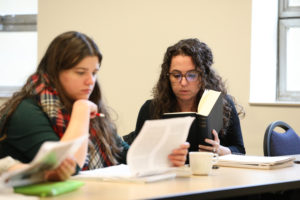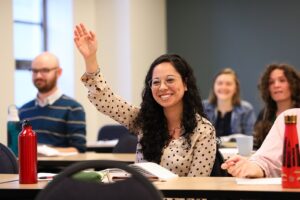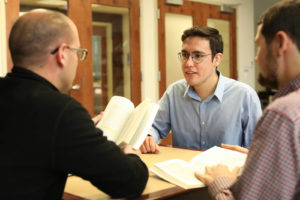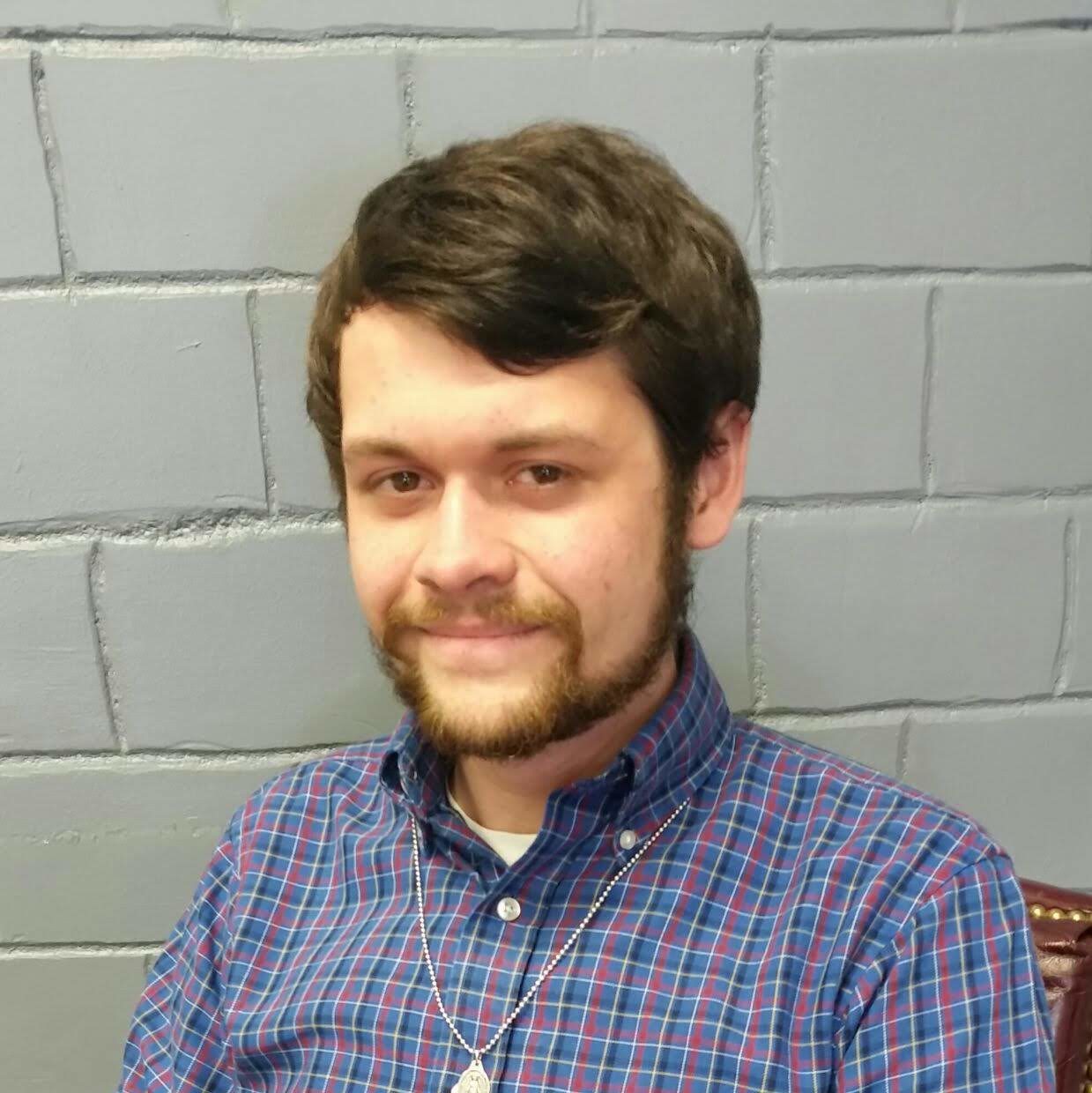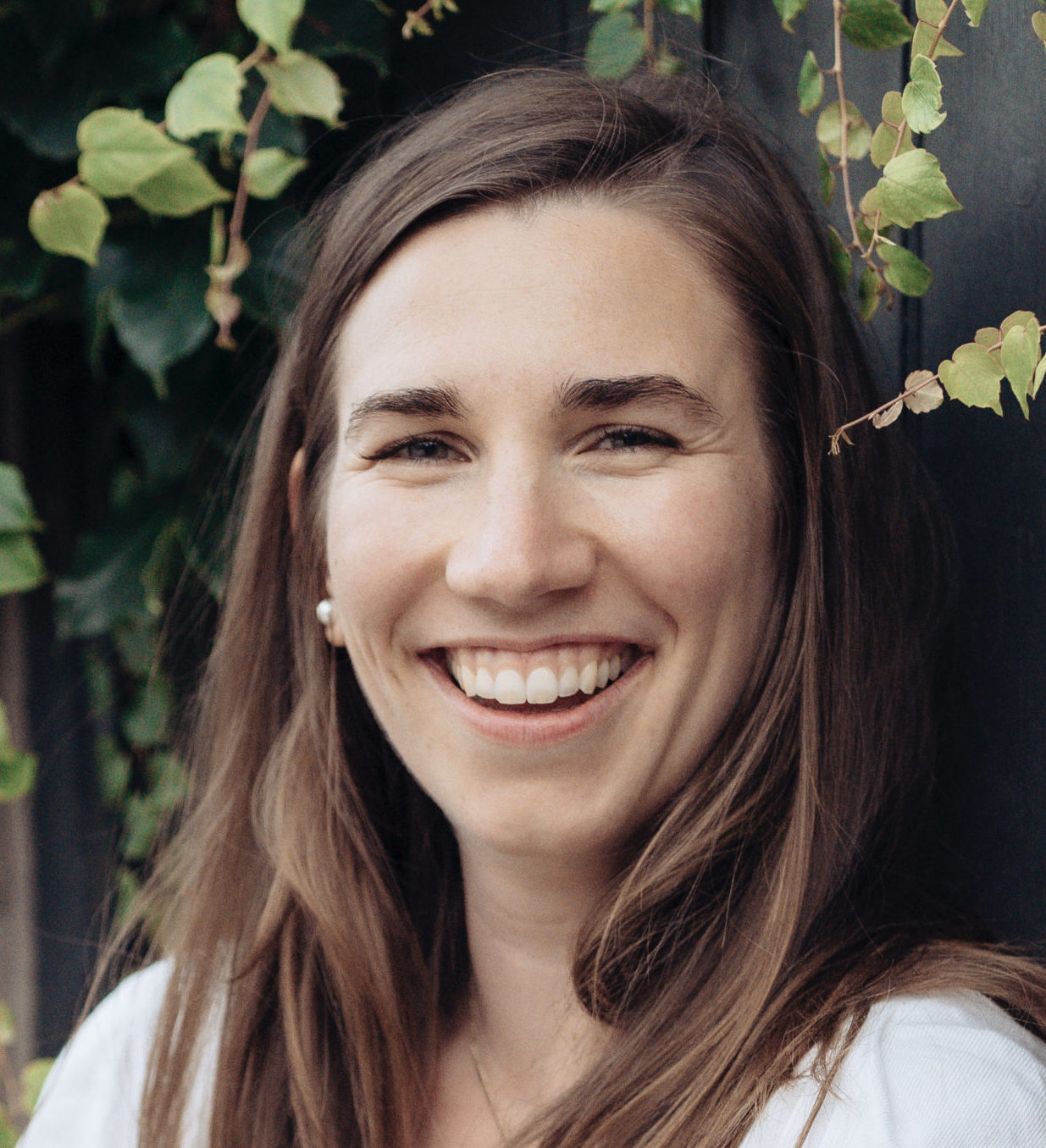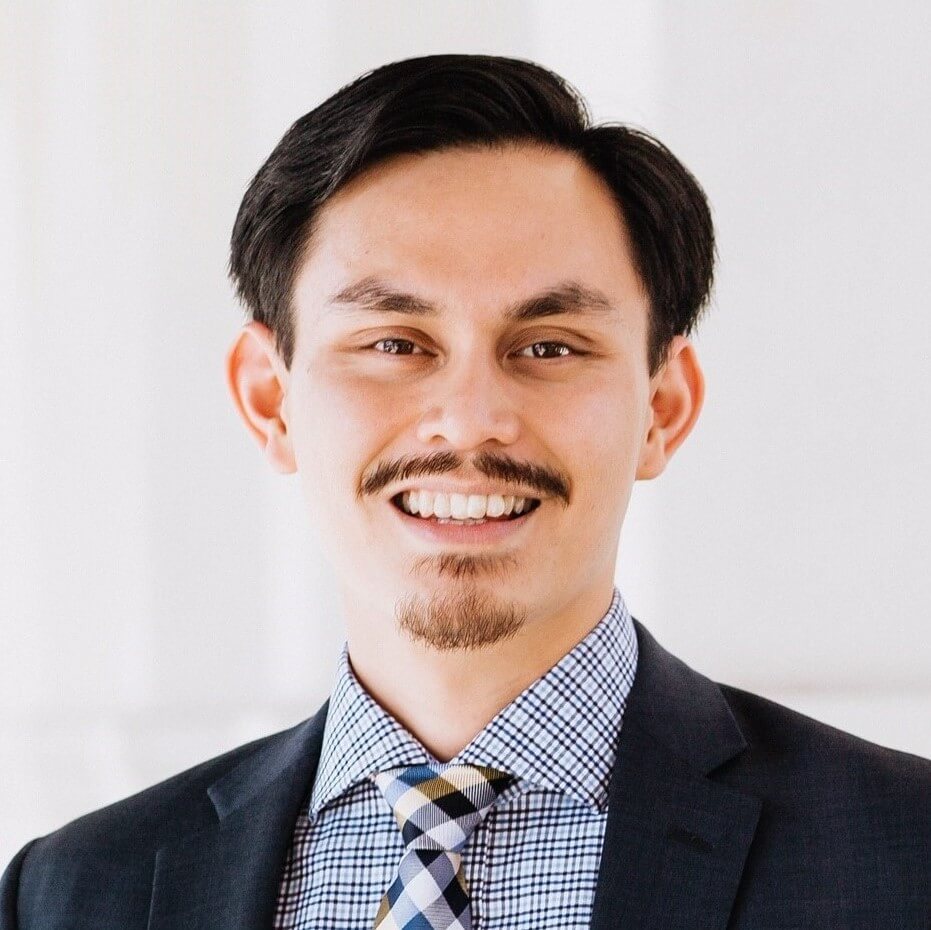General Information
Applicants must possess an undergraduate degree from an accredited institution in the United States or from its equivalent in foreign countries. While it is advisable that applicants for admission have a previous background in philosophy and theology, students without a background in philosophy and theology are strongly encouraged to apply.
| Application Form | The application form may be completed online or by PDF. Links to both options are available on the Apply page. |
| Application Fee | The application fee is $75 and is non-refundable. |
| References | At least three letters of recommendation from faculty members of academic institutions formerly attended. Please ask the professors to compare your achievement with that of other students at your level and to evaluate your readiness for graduate studies. These letters must be sent directly to the John Paul II Institute by the recommender through our online portal, by mail, or by email to [email protected]. You will need to complete a waiver for each reference letter. If you are completing the application online, the waiver form is included in the online application form. If not, a copy of the waiver form must accompany the mailed or emailed letter. |
| Essay | In a 1000-word essay, explain your intellectual interests and their relation to the mission of the Institute relative to the current cultural situation. You may wish to refer to the brochure “The Nature and Purpose of the Institute.” Your essays should be formatted in double-spaced, 12-point font, and may be uploaded as part of the online application or emailed to [email protected]. |
| Transcripts | Official transcripts of all post-secondary education (sent by the institution). |
| GRE Scores | Official Graduate Record Exam (GRE) scores are required for admissions to all degree-seeking programs at the time of application. Our institutional code is 3533, and we are listed as the Pontifical John Paul II Institute. |
| Identification | 1. Electronic photo (headshot). May be uploaded as part of the online application or sent to [email protected]. 2. A copy of your birth certificate and driver’s license/state ID, or a copy of your passport. |
| TOEFL Scores and Admissions Supplement (International Students Only) | 1. Applicants for whom English is a second language must submit TOEFL scores. Our TOEFL code is 8751. 2. Applicants who are not U.S. citizens must submit a completed Admissions Supplement Form. |
M.T.S. students are subject to the degree requirements of the academic catalog of the year in which they were first enrolled as degree-seeking students.
M.T.S. students must complete 48 credits of course work, in addition to a certain number of audits, as announced during the course of the school year, with a grade-point average of at least 3.0 on a 4.0-point scale. Additionally, students must pass a comprehensive examination administered in the final semester of study.
As part of the M.T.S. curriculum, master’s students are expected to participate in the Book Forum during the second and third semesters of their degree program.
This degree program requires four semesters of full-time study in residence. Part-time study is also possible at the M.T.S. level. Please discuss this option with the Director of Admissions if part-time study becomes necessary. In all cases, total tuition payments for the degree must equal at least the cost of four full-time semesters.
Program Elements
The comprehensive examination is based on the areas of study in the M.T.S. curriculum, including the areas of Sacred Scripture, patristics, fundamental and systematic theology, philosophy, moral theology, law, education, and science. Each of the M.T.S. specializations has its own examination, in accordance with the differences in the curricula. In either case, the purpose of the comprehensive examination is to assist the candidate in synthesizing and integrating his or her knowledge in the specialization.
The examination consists in three two-hour written examinations. All components are graded on a pass-fail basis. If a student should fail any one of the questions, he or she may be required to retake the examination in whole or in part. If a student fails the second time, he or she will cease to be a candidate for the degree.
In the examination, the student must demonstrate a mastery of the material covered in the program commensurate with graduate study, including concrete historical and theoretical bases, and offer substantive interpretations, pertinent interrelationships between fields, and relevant concluding judgments.
The Book Forum consists in a series of evening lectures followed by discussion on selected works of literature. The purpose of the Forum is to promote common reflection and conversation around the themes of person, God, love, marriage, and family as these have been articulated especially within the great tradition of twentieth-century Catholic/Christian authors in fiction, poetry, drama, essays, and the like. The authors to be read will include Bernanos, Chesterton, Claudel, O’Connor, Péguy, Berry, (possibly Eliot, Waugh, Percy, and others). In the words of Joseph Ratzinger, “culture at its core means an opening to the divine.” At the heart of every culture is an implicit understanding of ultimacy. . . of the meaning of our existence in relation to God. It is this relation to God that endows all of the activities of a culture—raising and educating children, marriage, music, dance, architecture, economy, etc.—with their deepest significance. Reciprocally, in order to discern how a culture conceives the human being’s relation to God, all the aspects of that culture should be considered. Reflection on great works of literature is integral to cultural discernment, and thus integral to the educational mission of the Institute.
Students receive a “pass” or “fail” grade for the Book Forum based on attendance and participation in the discussion and on a short paper, to be submitted the day before the meeting.
